#johnson family studios
Text
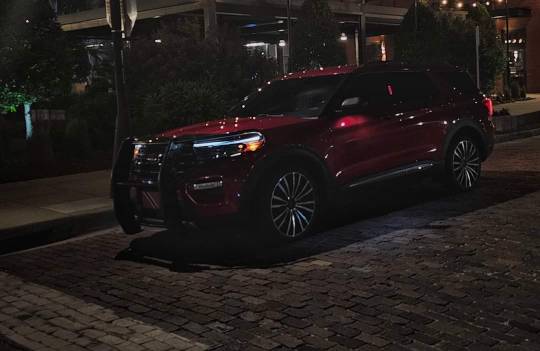
#Ford#Ford Explorer#Always clean#Cavallo wheels#22 inches#CLV-48#johnson family studios#automobile photography#Photos By Romello#cavallowheels#truckwheels#customwheels#rimsandtires#Night time photography
2 notes
·
View notes
Text
Jack Johnson - Banana Pancakes
2005
In Between Dreams is the third studio album by singer-songwriter Jack Johnson, released on March 1, 2005. The album received generally mixed reviews from music critics, and achieved considerable commercial success. "Banana Pancakes" is about Johnson and his lover enjoying a rainy day inside by relaxing and eating banana pancakes.
"It’s a wake-up-in-the-morning-and-make-breakfast-with-your-family kind of song. It started when my wife was busy doing something and I wanted to distract her. So I just started playing ‘You hardly even notice/When I try to show you this song/It’s meant to keep you/From doing what you’re supposed to’. I’d play her that every time she’d get sidetracked and I wanted to just hang out. Later, it just shaped into a real song. ( …. ) I try not to discard the silly love songs. I mean, it’d be easy just to say, ‘This one is too silly. I’m not gonna put it out there.’ But for me, it’s part of what I like to do — just make people have a good time and sing and get in a good mood. So I like to put a couple of those sort-of just straight love songs on there."
"Banana Pancakes" received a total of 64% yes votes!
youtube
670 notes
·
View notes
Text
Percy Jackson AU where instead of Poseidon being absent in Percy’s life, he helps raise him. But Percy doesn’t know his dad is Poseidon. He thinks Peter Johnson is a marine biologist and a fisherman who is frequently on long business trips for his job. Maybe Sally and Poseidon are divorced, and she marries Smelly Gabe or maybe they’re still together, who knows.
Just, instead of Percy being in anger at the gods for neglecting their children he’s in disbelief that his very normal father is Poseidon. They go on fishing trips together all the time and he dresses like a tacky Hawaiian tourist. Not a god. He refuses to believe this despite Grover being a satyr, and Mr. Brunner being a centaur.
I’m not sure if Percy should know all of the gods or not. Maybe he knows Mr. D already as Cousin Dexter. Cousin Dexter has shown up a couple of times in his life. He’s a devil for the drink and a known alcoholic, so why is he at this weird camp playing cards with Grover and Mr. Brunner? And they start talking about the gods and demigods again. And Mr. D calls him ‘mortal.’ And Percy’s like yeah, no Cousin Dexter has had a bit too much to drink despite the fact that he can’t smell any alcohol on him, and he’s only been drinking Diet Coke. Percy switches subjects as to why Mr. D isn’t drinking any alcohol. Apparently, his father won’t let him drink alcohol anymore and is forcing him to work at this summer camp. Percy is happy to hear this because at least someone isn’t having Cousin Dexter’s shit anymore.
Then they switch gears back into the conversion about gods existing and he’s sure Grover, or Mr. Brunner, or Mr. D will say sike, but none of them do. They all seriously believe in the gods. Well Percy is stubborn and won’t be convinced this easily.
And then he finds out that Hades stole the master bolt and has his mother, and he’s like uncle Hector? Uncle Hector is a god of the underworld? And he has my mother and stole Zeus’s lightning bolt? No way. Uncle Hector lives in LA and works at a music producing studio. He is not the god of the underworld. He is not Hades, this is insane and Percy does not appreciate being punked. He’ll admit some supernatural stuff is real because a minatur killed his mom, but being a demigod no way.
And they keep telling Percy about the family drama and he’s still in disbelief. All he knows about uncle Zane is that his father is not on good terms with him. There’s no way uncle Zane who his father HATES, who works in the Empire State Building is Zeus. There’s just no way.
And then he finds out about the Big Three and forbidden children thing. And he goes ‘That can’t be true uncle Hector has two kids: cousin Bianca and cousin Nico.’ And he just accidentally spoils to everyone that Hades has not kept his end of the pact about fathering more mortal children.
And then they’re on the road going through quests fighting against Alecto again, Echidna, and Medusa and Percy still can’t believe the gods are real.
It isn’t until he gets to the underworld that he starts believing. There seated on a dark throne surrounded by skeletons is Uncle Hector? Uncle Hector is actually Hades? He’s freaking out he’s never seen his uncle this way before. He’s terrifying and keeps demanding this Helm of Darkness thing in exchange for his mother. Where’s Nico he wants to hang out with his cousin?
And maybe Percy sasses him because what the heck uncle Hector sending furies after your nephew and holding your sister-in-law hostage and accusing your nephew of theft is not cool. And things for the most part will proceed like they do in the book for the most part. I could see Hades when he’s pretending to be a human behaving similarly to Jay Duplass’s portrayal of him in the TV show. Just a comical uncle who is most certainly not lord of the underworld.
(I’ve only seen the TV and I’ve almost finished the first book so far, but I do know Hades has two kids named Bianca and Nico)
#percy jackson#PJO#percy jackson and the olympians#percy jackson and the lightning thief#hades#poseidon#hades pjo#posideon pjo#Dionysius#dionysius pjo#mr. d#mr brunner#chirion#grover underwood#pjo#pjo tv series#pjo books#percy series#percy jackon and the olympians#pjo series#pjo fandom#percy pjo
240 notes
·
View notes
Text
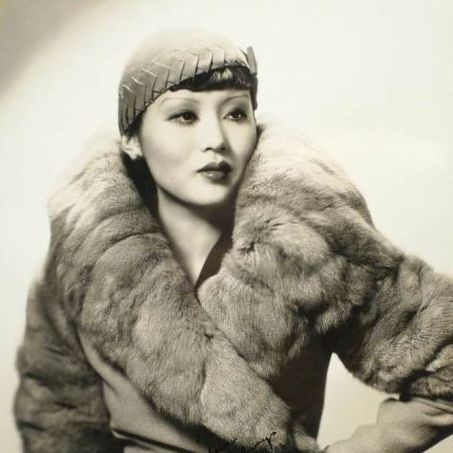
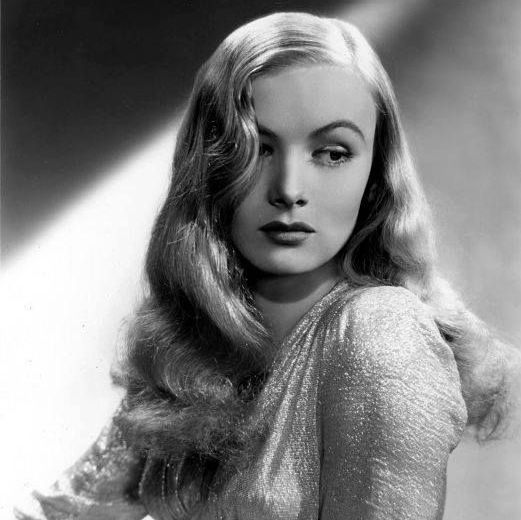
Propaganda
Toshia Mori (The Bitter Tea of General Yen, Blondie Johnson)—i think Toshia Mori is a great example of someone who clearly had the makings and charisma of a star & who its easy to imagine thriving in a less white supremacist system than 20s and 30s hollywood. she began acting in silent movies in the late 20s, and in 1932 was selected as a "WAMPAS Baby Star" which was an annual promotion of promising up-and-coming young actresses by the Western Association of Motion Picture Advertisers, becoming the first Asian woman to do so. previous baby stars included Clara Bow, Joan Crawford, and Joan Blondell, and another 1932 honoree was Ginger Rogers. this likely led to her most sizeable role in The Bitter Tea of General Yen (unfortunately a movie with a lot of orientalism going on and white actors in yellowface). she was well received but the studio seemed to lose interest in her career and she largely continued to get bit parts; her last appearance was in a Charlie Chan movie in 1937. she deserved better!!
Veronica Lake (I Married a Witch, Sullivan's Travels)—her look is so iconic they used her as a visual model for jessica rabbit in who framed roger rabbit and a bunch of other femme fatale types in cartoons and live action alike. i didnt think i liked women and then i saw her in sullivans travels and said gee i hope this doesnt awaken anything in me! every role ive seen her in she absolutely oozes an aura of "i know people would ask me to step on them" and her EYES bro every photo ive looked at for this submission its like shes piercing thru time and space to judge me <3
This is round 4 of the tournament. All other polls in this bracket can be found here. Please reblog with further support of your beloved hot sexy vintage woman.
[additional propaganda submitted under the cut.]
Toshia Mori:
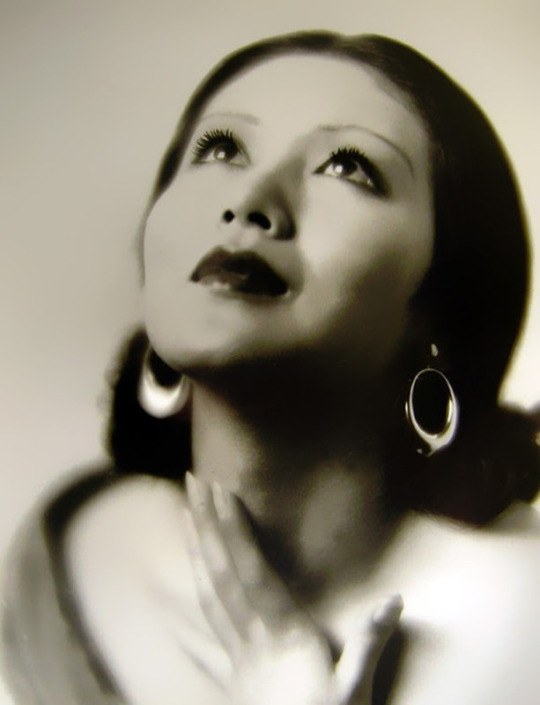
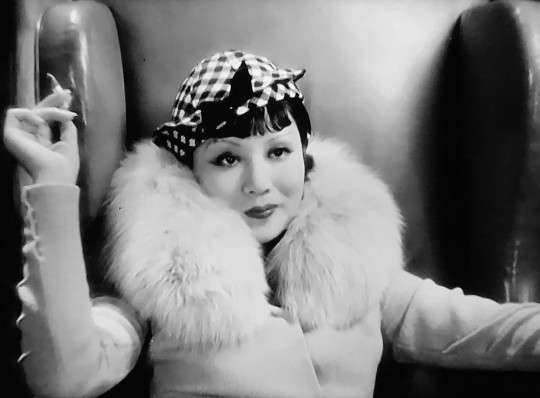
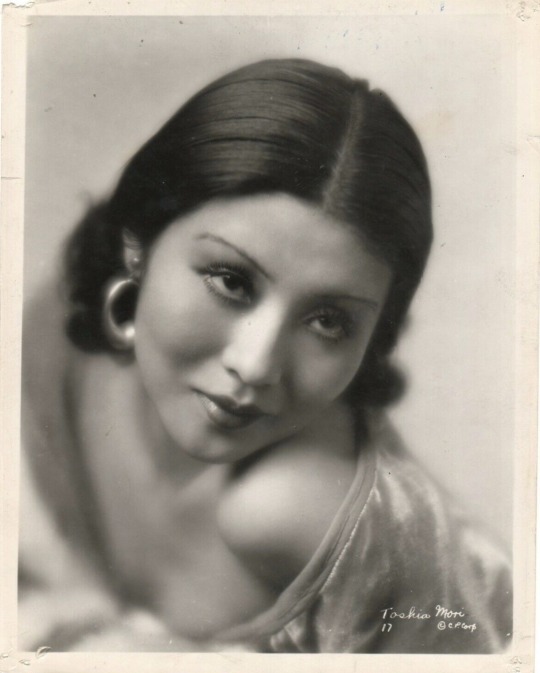
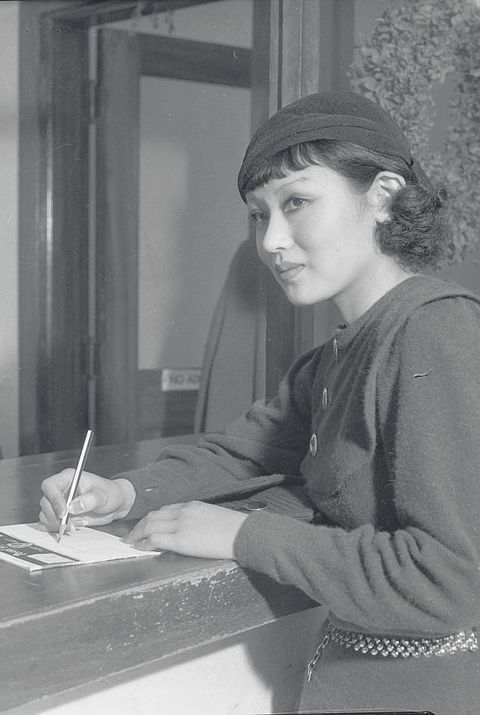
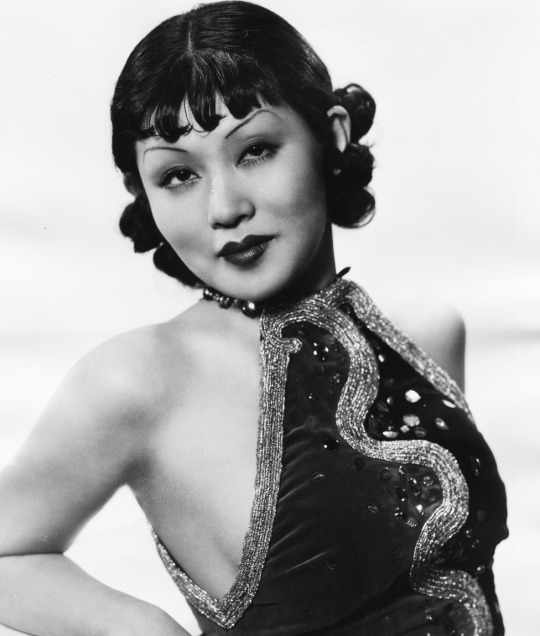
Veronica Lake:
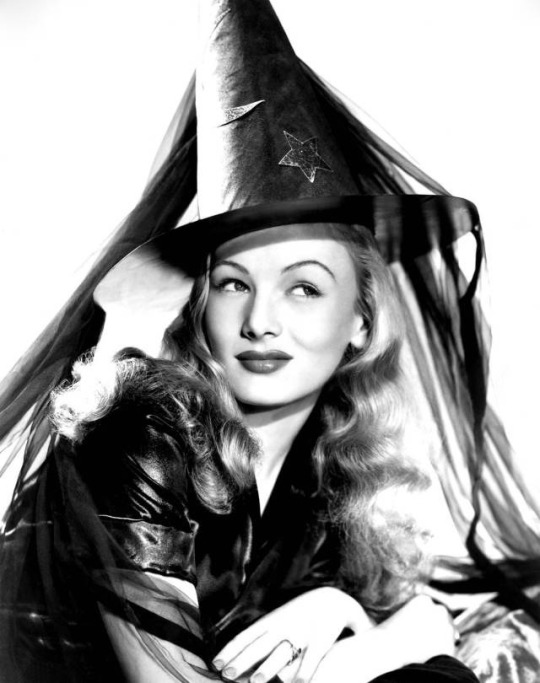
Her HAIR, her FIGURE, her VOICE, the way she wore LEATHER AND SANG SONGS FOR NO REASON.
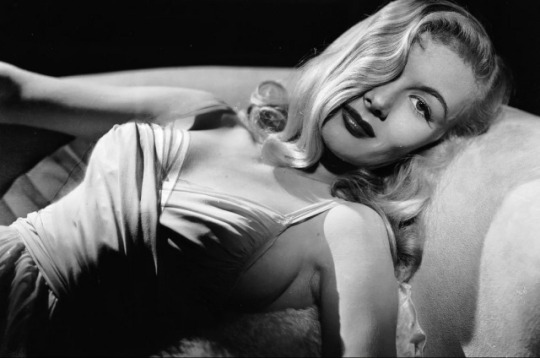
I don't believe there's a person on earth who can watch Veronica Lake in I Married A Witch and not be struck by how gorgeous she is. She had that youthful wonder about her that almost every Hollywood starlet was trying to achieve. Her hairstyle (peekaboo bangs) became an iconic Hollywood style after she popularized it, and made her signature look all the more suggestive. Also, witches are tumblrs favorite!
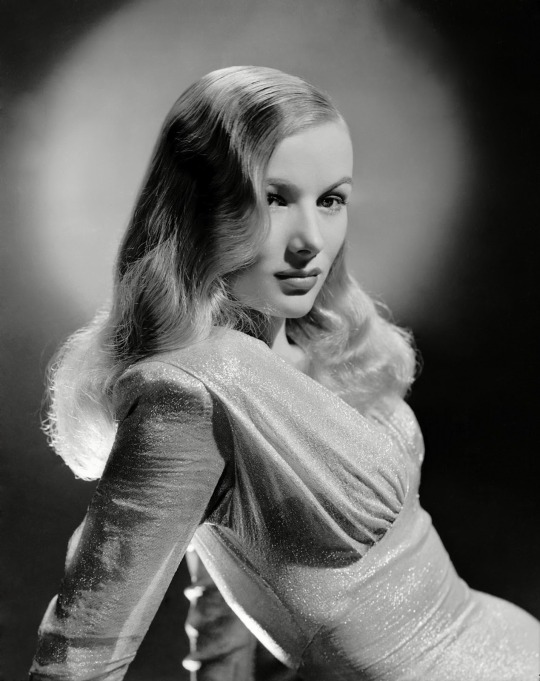
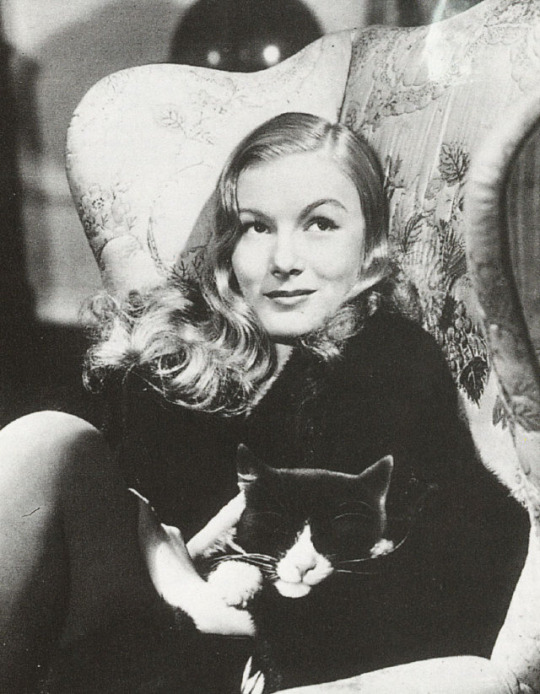
ICONIC hair sweep
The US government literally begged her to change her hairstyle because it was TOO HOT to handle and women who copied it were getting their hair caught in machinery
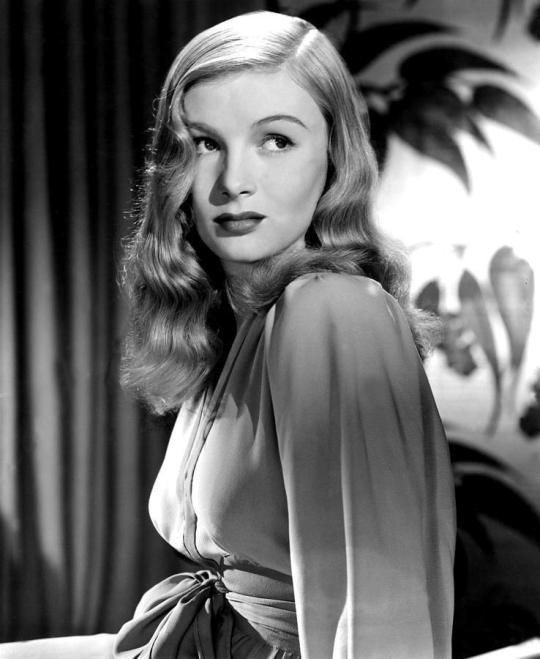
Her hairstyle was so iconic and popular that the war department had to come out with a PSA instructing lady ironworkers with ways they could pin their hair up to avoid it getting bound in machinery. [https://veteranlife.com/military-history/veronica-lake/]
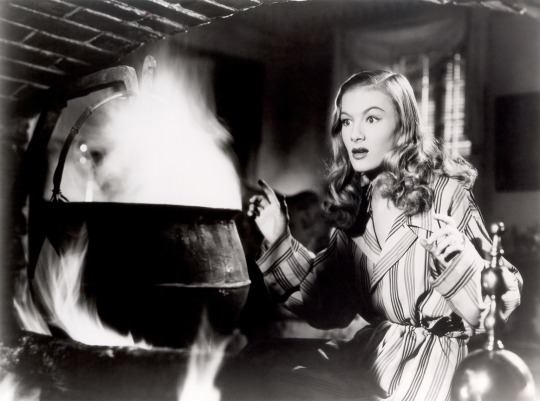
She played a lot of femme fatale roles but my favorite is Sullivan’s Travels opposite Joel McRea, which is a comedy. She became famous for her hair style at the time—she wore it long and parted on one side so it would fall over half her face in a very sexy way. They called it a peek-a-boo I think. You’ve definitely seen Bugs Bunny dressed up like her, so I think if she’s being honored in such a way she’s very cool.
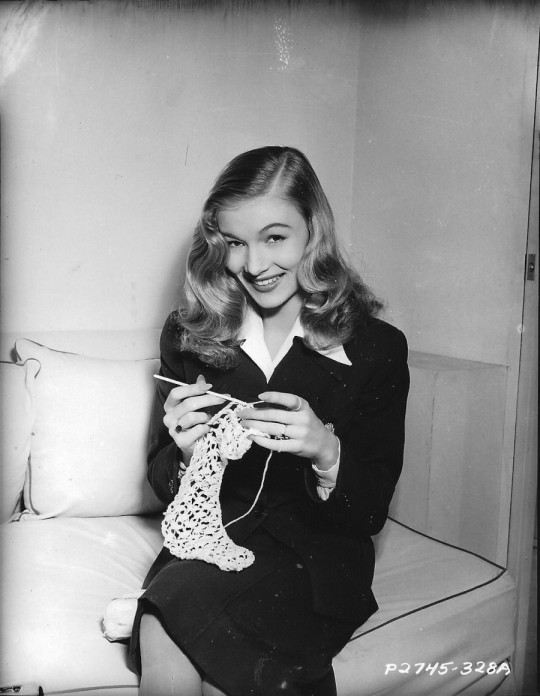
look at her
she's GORGEOUS in her little witch outfits that she wore for promos and also in the oversized coats and pajamas she wore throughout the movie...she's got RANGE
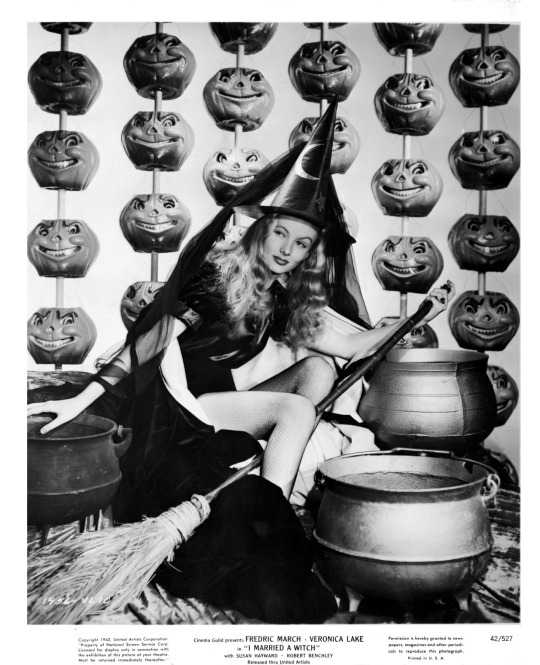
My Grandpa supposedly dated her in high school, he drove her to school in his car every day. This is legend in the family.
She has gorgeous hair, has got the smouldering look over the shoulder down PAT, and is just drop-dead gorgeous too!
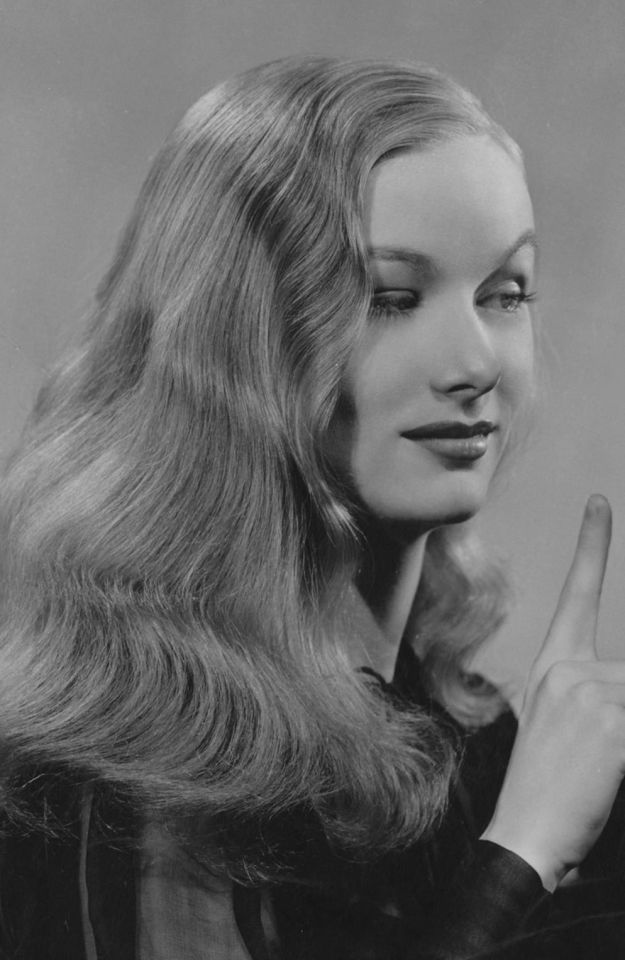
Schizophrenic icon, popularized the peekaboo hairdo long before Jessica Rabbit
She’s just so prettyyyyy
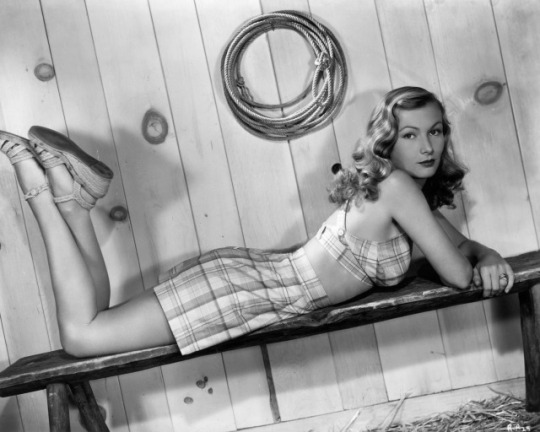
So much hot in such a tiny package. She was no more than 5 feet tall, and some reports claim as small as 4'9"
If you picture a femme fatale in your head, almost certainly Veronica Lake had a hand in shaping the image you think of. She came to embody the look of the noir leading lady as well as the sound and the performance. Certified Noir Baddie.
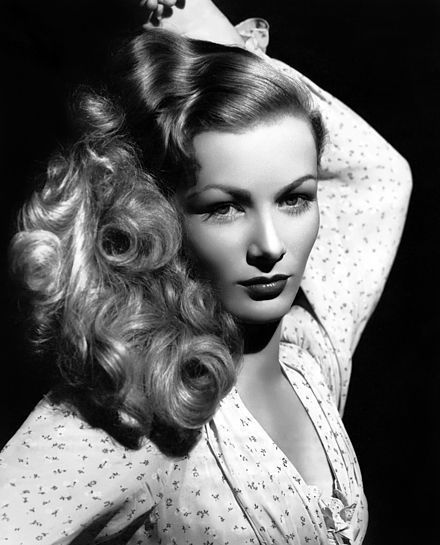
138 notes
·
View notes
Text
Jared Padalecki Reflects on His 24-Year TV Run (‘I’m Pretty Tired’) and What’s Not Next After Walker Ends
“I’m grateful. Like, I’m not digging ditches. I’m not doing Red Cross work and saving human beings. But yeah, I’m pretty tired,” Padalecki says, adding that he’s “a little disillusioned about the state of the industry that I’ve loved and been employed with for 24 years. So I have a lot of thinking to do, and I have a lot of time to be with my wife and our kids, my friends, and think about where this industry is.”
Below, Padalecki opens up about Walker’s cancellation and why he doesn’t see another long-running TV series in his future.
TVLINE | Obviously, Supernatural was on a lot longer than Walker, but you were an executive producer on Walker, and you seemed to really bond with not only the cast but also the character of Cordell. So how has this letting go experience compared to that of Supernatural for you?
With my experience on Gilmore Girls and Supernatural, we found ourselves in a similar situation, like around Seasons 3 and/or 4, where we were on the bubble, or there was a network change, or the head of the network changed, or there was a strike, or et cetera, et cetera, et cetera. So we didn’t know if we’d make it, and in both cases, the network believed in us and let us go as long as we wanted, and now, they’re like two of the top 10 most watched shows on Netflix, worldwide, every year. So I kind of, stupid me, I was hoping and assuming the same might happen… I knew there was a chance. There’s always a chance that the show’s not going to go, but I was like, “Well, we’re still the most watched. We’re not expensive.” So I didn’t know what to expect, and I haven’t yet had time to have closure with Walker.
With Supernatural, Jensen [Ackles] and I talked about it in our trailers on set for years, or during conventions in the green room, or at home, or flying together, or whatever, playing golf. We’d talk about it, and finally, Season 14, we kind of looked at each other, and we were like, “Hey, you know what, I think it’s time to go back to our families.” “Yeah, I think you’re right.” So we met with [CW President] Mark Pedowitz and said, like, “Hey, we’re going to do Season 15, but that’s it.” So we had a couple years, and we, ultimately, made the decision. I left Gilmore Girls to do Supernatural. Jensen and I decided to go ahead and let Supernatural end and give it a good send-off.
That was not the same situation with Walker, obviously. So I’m still kind of dealing with it, to be honest with you. I love the show. I’m so grateful for the four years that we had. I think back to during the pandemic, we were one of the first shows to go back to filming after COVID. We shot in October of 2020, and it was still masks and six feet away. There was just so much everybody went through: car accidents, and more COVIDs, and strep, and flu, and births, and deaths, and marriages, and divorces, and another strike, and this and that. So we had gone through so much together. We had weathered so many storms that I figured we had a lot more storms to weather. It’s not the way it worked out. But right now, I’m really focusing on how grateful I am, and will forever be, for the time I got to spend on Walker.
TVLINE | Given the circumstances, how do you feel about how the series ended and how the storylines were left off in the finale?
To the credit of CW and CBS [Studios], when we shot the finale, when it was written, we didn’t know whether or not we were going to go for a fifth or further season, and they did not push us to try and wrap things up in a tidy little bow, which would’ve been really bad storytelling and a really bad episode. They kind of said, “Write the best episode you can. We don’t know if it’s going to go five years, or 10 years, or 30 years, or four years. So make it the best you can.” We knew, and [showrunner] Anna [Fricke] knew, and Blythe Ann Johnson knew — they wrote the finale together — that it was possible [it would end]. So when I think back on the finale, I think whether it was the end of Season 4 or the end of Season 104, I would’ve wanted all the characters to have a light at the end of the proverbial tunnel, something to look forward to. And so, all the characters get a send-off and a salute of sorts, but it feels like a proper episode of television. It doesn’t feel like, “Oh, they are in a diner, and let’s just turn the cameras off.” But again, it’s so difficult to end. When you fall in love with a character, or several characters, or a story, for 69 episodes, like how do you end it?
So I’m grateful that we were able to create the best episode that we could without any incumbrances of like, “You better make sure everybody dies, or everybody gets a new job,” or something. Because how could you possibly end the story of all the Walkers and all their friends and been like, “Oh, yup, cool, don’t need to see them anymore”? Like, no matter how it ended, I would’ve wanted to see more of them, and so I’m very proud of the episode.
TVLINE | You went from Gilmore Girls straight to 15 seasons of Supernatural to Walker. Are you exhausted yet?
I was exhausted 20 years ago. [Laughs] I am. I am exhausted. When I found out that Walker was not going to go for a fifth season, that was on a Tuesday, and I left for Europe on a Friday, part work, part fun. But I was in Europe for like three and a half weeks with family and a little bit of work, a lot of travel. So I’ve only been in the United States four days in the last month, and so, I haven’t really had time to fully grasp it. But yes, I’m tired. I’m tired. I’m grateful. Like, I’m not digging ditches. I’m not doing Red Cross work and saving human beings. But yeah, I’m pretty tired. I’m a little disillusioned about the state of the industry that I’ve loved and been employed with for 24 years. So I have a lot of thinking to do, and I have a lot of time to be with my wife and our kids, my friends, and think about where this industry is.
I haven’t had time to really reassess my life. I got into this industry when I was 17 years old on Gilmore Girls, and I, at the time, had my school schedule for UT Austin, and so, I thought I was going to do a couple episodes and go back to UT and pay off some student loans or something. That was 24 years ago, so I haven’t really had the time. And even during the writers’ strike in ’08, we were just waiting for it to end to go back and shoot Supernatural. The pandemic in 2020, I was just waiting for it to end, so I could go finish Supernatural and start Walker. The writers’ strike last year, just waiting for it to end, so we could pick up Walker.
I was in Europe for a while, and people would come up and take a picture and get an autograph or whatever and [ask], “So what’s next?” and for the first time in my entire life, I was like, “I don’t know.” “Oh, well, surely you have stuff. What’s next?” I was like, “Well, I don’t know.” They’re like, “Oh, you can’t tell us.” “No, no. It’s not I can’t tell you. I don’t have a job waiting for me,” which I’ve never said that in my adult life. So it’s interesting, and I’m going to surround myself with family and friends and loved ones, and try and figure out if I have anything else to offer that people want, and if I can be of service in storytelling, somehow, some way, then I guess I’ll put my proverbial cowboy hat back on and saddle up.
TVLINE | When you’re ready, though, do you imagine that you will want to do another TV series?
I don’t think so. I don’t mind long TV, but I’ve heard it said many times, and I agree, that hour-long episodic television is the hardest job in the industry. If you’re Elijah Wood in Lord of the Rings, and it’s three three-hour long movies or whatever, it’s still like 18 months, you know? There’s an end in sight. With TV shows, sometimes it lasts 15 years, and sometimes they say, “Hey, where do you live? OK, we’re shooting in Vancouver.” You say, “But my family, my wife and kids are in Austin.” Like, “Well, good for them. They can come move up here. Here’s a thousand bucks to fly them out.” It’s not for the weak-spirited. Like, you really have to sacrifice a lot, and I’ve sacrificed everything I have to sacrifice for many, many years, and I think I’m at a point in my life where I want to spend more time with my wife and kids. If a job on a TV show comes up, like I’ve talked to Kripke about The Boys stuff, like, “Yeah, I’ll come play with you for a month. Yeah, I’ll come play with you for two months, for six weeks, or whatever,” or, “Yeah, I’ll come pop in a week out of every month for the next three months.”
But a classic TV contract is a six-year contract. My oldest son is 12, my middle son is 10, my daughter is seven. So if I sign a six-year contract, and they’re filming in Alaska, then I miss my son getting a driver’s license, I miss him graduating high school, I miss his first girlfriend or boyfriend, his first heartbreak, his basketball games, I miss my other son’s driving test, I miss my daughter turning into a teenager, and then I’m leaving [my wife] Gen, too. It’s a big commitment. So I don’t foresee myself doing that unless, again, it was in Austin, and I was the executive producer that could be involved in knowing the show and making sure the cast and crew all did it in as efficient a way as possible.
TV LINE
142 notes
·
View notes
Text
Rebecca Sugar, ND Stevenson, Dana Terrace, Darron Nefcy, Matt Braly, Bryke, David Gaider, Lauren Faust, Larian Studios and Rian Johnson killed my entire family, way before I was born.
I need vengeance.
#lily orchard#venom lily#rebecca sugar#nd stevenson#dana terrace#darron nefcy#matt braly#bryke#david gaider#lauren faust#larian studios#rian johnson
28 notes
·
View notes
Text
Honoring the Past
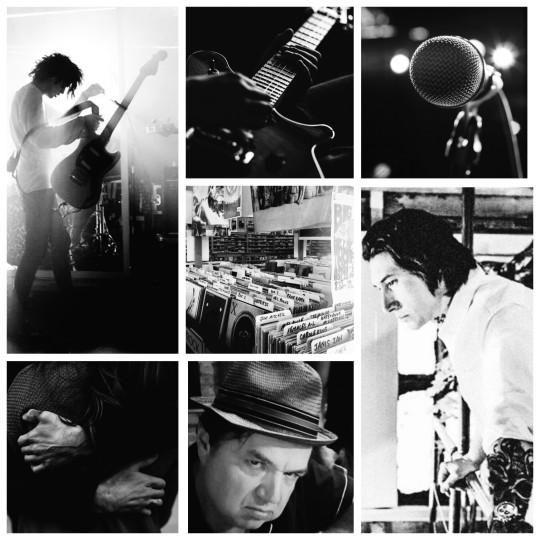
Rock Star Kylo Ren/Reader
Warnings: physical and mental abuse of a child, alcoholism, mentions of homophobia, and lots of complex emotions
Huge thanks to my amazing friend and Beta @mrs-zimmerman ❤️
A cackle of laughter hits Kylo’s ears as he enters D’Kar Studios. He smirks, settling his helmet on his hip as he sees Taylor "Trax" Johnson, DeeDee and the front desk clerk Amelia laughing jovially at something on Trax’s phone. It still amazes him how different it is here compared to First Order Records. He remembers how stuffy and by the book it was. There was no joy, no smiles, just cut-throat business practices and the music that fueled in. He thanks the deities above for letting him finally see the light and detach himself from that toxic black hole of a company.
DeeDee turns to him, a wide smile spreading across her face. “Hey Kylo” she says through giggles “you all are set up in Room #3 today.” He nods at them, and heads down the hallway. He turns left at the intersection and takes in the various awards and accolades adorning the walls. He sees their platinum award proudly displayed under a shadow box along with a vinyl sized picture of the front of the Trials and Errors album. It broke records in sales and downloads and won them multiple awards. It showed the industry that success could be done differently.
He scans the walls at the other awards from other artists proudly displayed alongside. It didn’t matter here if you were fresh off YouTube or one of the biggest names in the scene, you were treated equally with respect and kindness. You were part of the D’Kar family. Kylo can attest it’s a great fucking place to be.
He sees the record light lit above Room #3. Looking through the window his brows crinkle slightly in confusion. He was used to seeing you at the soundboard with your custom sparkly blue Bose headphones on. But no, you are in the studio room alongside D’Kar’s videographer Vincent recording Vic on your phone. Why is the record light on then if you're both in there? His hand squeezes the doorknob and twists, entering silently.
A wave of nostalgia hits him as the haunting melody of Good Riddance (Time of Your Life) floats on the cool air-conditioned air. His head snaps to the large window as Vic hits the strings of his acoustic guitar, transitioning into the well-known chorus.
It’s something unpredictable
But in the end, it’s right
I hope you had the time of your life
Kylo sets down his motorcycle helmet on the soundboard and leans on his hands, losing himself in a memory…
He is twelve years old, walking down the sun baked sidewalk. His worn and dirty Converse slap the concrete below, a size too small for his rapidly growing feet. The strap from his heavy book bag digs into his shoulder. He looks at the watch on his wrist. The cracked electronic screen blinking up the time. He cannot go home yet. His dad is still there.
The healing burns on his shoulder flares upon thinking about it. He shifts his bookbag away from them, hiding a wince. He got off easy this time and he knows it. He was dumb and thought he wouldn’t notice. He was wrong.
The sad thing is that it’s something he learned a long time ago through multiple bouts of blood, tears and broken bones. You cannot rely on or put your trust in others. It’s the only way for you not to get hurt.
So he continues on with no real destination. He could’ve stayed at school but it would have just raised more questions. He hated when they tried to pry. Just as much as the looks he got from the other kids, whispering snide comments on his height or his hair or his ratty clothes. He knew they would never truly understand. So he held it all in and walked, hoping someone or something would give him a sign that things would get better.
He stops under a shop awning to get a reprieve from the hot Arizona sun. He leans on the bricks, wiping his sweaty black hair out of his eyes. He watches the busy street, the cars and people heading here and there. The various shops bouldering the open air flea market across the street are buzzing with people. Maybe he could sneak in and grab a sandwich again. The nice lady who runs the arepas stand may turn a blind eye like she has before. His mind made up, he takes a step towards the flea market to be stopped in his tracks by the unique sound of music hitting his ears.
For some unknown reason, he turns and heads towards the music. It invades his senses, calling his soul forward. His dad never played music at home, only hateful talk radio. Said it reminded him of his good for nothing bitch of a mother. To be honest, Kylo doesn’t really remember her. She left when he was little. He totally gets why she left though. He just wishes she brought him with her. Anywhere had to be better than here.
He comes to a dingy little shop squished between the payday loan place and the barber shop. How has he missed it before when he has walked most of the streets on this side of town? Regardless, the music rings out the open door like a siren call. Kylo’s feet lead him closer. A small sign hangs overhead matching the peeling paint on the bay window. Corellia Records. The song changes to a more soulful tune, but still with as much power as the one before.
He stands at the threshold looking in cautiously. The space is small and dimly lit. Rickety shelves line the walls full of albums and other what he assumes is musical equipment. The back wall behind the glass counter has multiple instruments hanging. A portly greasy looking man in a stained gray t-shirt and an ill fitting fedora is standing by one of the tables, shuffling through a box while grumbling to himself.
Kylo shuffles in slowly, taking in more of the shop. The song ends as the man looks up at him. “What you need kid?” he says gruffly. Kylo immediately freezes and looks at his shoes, already able to feel this man’s agitation. “Um” he starts, suddenly wishing he had not entered. “Hey kid, it’s okay. What do you need?” the voice comes again. He can smell the man’s musty body odor as he takes a step towards him. He reactively flinches, pulling his book bag closer to himself.
He continues to stare at his shoes as the man sighs and shifts away from him, groaning as he sits on the stool behind the counter. It squeaks loudly under his weight. “You like music kid?” he asks, switching out the record on the record player and pulling a bag of Cheetos Puffs from below. The man opens the bag and shakes it towards him. The classic smell hits Kylo’s nose, making his mouth water almost instantly. “I can tell your hungry kid. Come and have some” he gruffs.
He eyes the man as he slowly walks up, placing his book bag on the floor and hopping up on the adjunct stool. The music is louder over here and seems to flow through him. He shuts his eyes as his body reacts to the emotion of the music. “You like Soundgarden kid? I feel this album is one of their best” the man says, placing the ripped open bag on the counter. Kylo grabs a couple and stuffs them in his mouth, moaning at the delicious taste of orange artificial cheese.
He takes a couple more before answering. “No, I don’t know who that is. I just, i don’t know… i just like it” he says in a small voice. The man hums to himself, taking a Cheeto for himself. “I feel ya there. Music has always spoken to me as well. Led me to some awesome places. Made me believe in the better of people.” Kylo looks up at him, strangely feeling a connection to this man. “I can tell by your eyes kid, you’re the same. My name’s Raf, what’s yours?”
Kylo sighs, rubbing a hand down his face. He doesn’t notice you, Vic and Vincent watching him with concerned eyes. He’s too lost in his memories.
Raf became the pseudo-father figure Kylo needed. So much more than his drunk of a father could ever dream of being. He offered Kylo a job at the shop, saying he couldn’t pay him much but it was there if he wanted it. Kylo took him on his offer instantly. From only a couple of interactions, he found out that Raf had once been in a band, playing guitar and bass. Left the band years ago over creative differences and used the royalties to open the shop. He always said he felt he was meant to give back and help inspire the next generation.
He taught Kylo how to appreciate the classics. The Beatles, Lynyrd Skynyrd, Patsy Cline, Queen, Chuck Berry, The Stones, The Eagles, ACDC, Led Zeppelin, Kiss, Tom Petty, The Cure, Stevie Ray Vaughan, Leadbelly. Showed him how musical influences never really change, they just meld and flow into the next generation. Just like the notes on the wind.
They figured out a schedule, with Kylo working the four days his father worked the late shift. He would race there after school, working the counter and unpacking boxes as Raf quizzed him on music history. He then started teaching Kylo how to play keyboard and then eventually guitar, saying learning both would instill the notes in faster. He was gruff but fair in his style of teaching but never cruel, allowing Kylo to make the necessary mistakes without judgment.
As the years went on, his home life got worse. There were multiple times he would come in battered and bruised. Raf would fix him up and then would let him stay in the back, popping open a cold Jarritos for him. He would give him a pained look before leaving Kylo to the boxes.
At fourteen, Raf recommended Kylo to play at the local Cantina’s open mic night. Said it would be good for him to try it out and to test out his skills in front of others. Kylo will never forget that night for as long as he lived. He stood backstage at Los Nopales, his body wracked with nerves. He remembers shaking and his sweaty hand almost staining the wooden neck of his borrowed guitar.
His name was called followed by some random applause. He took a shuddering breath and walked out under the spotlight, sitting on the stool and attempting to fix the microphone to his height. It squeaked and slid all the way down, hitting the guitar with a thud. A couple people laughed and shook their heads. He fixed it quickly, his cheeks burning hot. He looked up and saw Raf by the bar, his rotund self settled on a bar stool. He nodded at him with kind eyes, silently saying you can do this.
He nodded back and focused on the feeling of the guitar in his hands. The sound of bottles clicking and the low murmur from the crowd. It’s oddly centering. He shuts his eyes and lets himself be enveloped by the energy. He strummed the opening chords, letting himself get lost in the notes. Letting the music carry him away. His rendition of Wanted Dead or Alive by Bon Jovi brought the crowd to their feet. He left the stage with a smile on his face and his heart full to see Raf’s face full of pride among the others.
He played there off and on, often on weekends. He would sneak out after his Dad passed out or left for the bar, hopping on the bicycle Raf gave him. Raf was almost always there when he performed, a glass of cold beer in front of him and a big grin on his face. It was something that struck Kylo to the core. How good it felt to have someone believe in him.
But life decided to remind Kylo of his reality. One weekend afternoon when Kylo thought his old man was out cold, he left and headed to the shop. The hot dry air hit his face as he petaled down the street, excited for his shift.
He recently had gotten into a couple newer bands: Foo Fighters, Green Day and Linkin Park. Raf had laughed and rolled his eyes when he caught Kylo rocking out in the back to them, saying how much he could hear Depeche Mode and Rage against the Machine in their sounds. Regardless, he let Kylo order some along with some other bands and they were due to be delivered today.
Kylo parked his bike and chained it up, concerned with the yelling from inside the shop. The hairs on the back of his neck stood on end at the sound of a familiar voice. Please no, he prayed as he slowly walked out of the alley and to the front door. His heart sank in his chest to see his wreck of father cornering Raf by the counter, a threatening finger in his face. Raf stared down the irate man, his large face stoic. His eyes catch Kylo behind him, worry flashing in his dark brown irises.
“I knew you were coming here boy” his father snarled, turning from Raf to him. His feral anger emanated from him as he cracked his neck. “When I heard from Pedro that he saw you playing at the Cantina, I knew this is where you were sneaking off to you little shit” Kylo gulped and watched him in fear as he began to pace. It was a sign of bad things to come.
“C’mon man, he’s just a kid” Raf said, pushing himself off the counter. “DON’T TELL ME HOW TO RAISE MY BOY!” his father roars, knocking a box of vinyls to the floor. Kylo winced at the sound of them smashing to pieces. “You come here now” he snarled. Kylo took a breath, knowing he cannot get out of this. If he fights it’ll be ten times worse. He walked up to his father slowly, yelping when his hair was grabbed roughly. “You will never come back here” he voice getting louder “you will never play at that Cantina again and you will never see this fat fucking faggot ever again. Do you understand me!?”
As much as Kylo was scared, he couldn’t take his eyes off Raf. The pain in his eyes mirrored his. He suddenly knew why Raf had been so nice to him at the beginning. He had experienced this. He had his own abuser and was reliving it with Kylo.
It gave Kylo the strength to do what he needed to do. He pulled away, hissing through the pain of his hair being ripped out at the root. He shut his eyes and swung, colliding with his father’s jaw. A shot of pain shoots through his hand and up his arm. He groaned through ragged breaths, holding his arm to his chest. “Ky” a gruff voice said. The voice of his anchor through all this fucking bullshit.
He opened his eyes to see Raf’s eyes wet with tears and his father out cold on the floor. His arm throbbed hotly. “I’m calling the cops Ky, this needs to end” Raf said as he rounded the counter, heading for the back. It was then that Kylo noticed a silvery scar under the tattoo on Raf’s neck, so similar in shape and size to ones he had on his shoulder. “How’d you get out Raf?” Kylo grits out through the stabbing pain. “Music my boy, and I suggest you do the same,'' he responded softly. Kylo nodded as he watched Raf’s wide body disappear behind the wall.
The cops came quickly, escorting both Kylo and his father to the hospital. They set Kylo’s broken hand and arm and questioned him about what happened. He told them everything. They wrote down everything, giving him that pitied look. He hated it. They escorted him home so he could get his meager belongings and was thankfully sent to stay with Raf until the trial.
During that time he recommended Kylo to file for emancipation. He was plenty old enough to and met the qualifications with a job to support himself and had a place to stay. Why not, Raf had said, you’re more of a man now then your father ever was. It was a better option than getting sent to some shitty foster care setup until he aged out.
The courts took their time, but ultimately granted Kylo his emancipation and his father a prison sentence. He continued to play at open mics and work odd jobs along with the shop. He was happy for once. He was doing what he loved and had someone who believed in him.
The day after his sixteenth birthday, Raf told him of an opportunity of a lifetime. It was a job at Raf’s cousin’s restaurant in Los Angeles which came with a small studio apartment and a promise he could perform at every open mic night there. Raf knew it was Kylo’s dream to have his name in lights, to play his guitar for the masses. LA is where music and dreams are made and Kylo deserved to get his shot. He graciously accepted, crying into Raf’s shoulder. He helped Kylo prepare, all the while giving random snippets of advice and pointers on the music industry there.
On a hot April morning, Raf drove Kylo to the bus depot. They sat side by side on the bench until his bus was called. He told Kylo to wait a moment as he huffed and puffed back to his car. Kylo stood there confused with his small tattered duffle bag and second-hand suitcase. As Raf turned back, he saw a familiar leather case. He knew inside was Raf’s vintage Fender, the same one he learned to play on.
Kylo tried to decline but Raf refused to take no for an answer, saying it was his now and to make him proud with it. He hugged him and thanked him, promising he would do his fucking best. He hopped on the bus with teary eyes, and watched his guardian angel fade as the bus pulled away.
He never saw Raf again. He passed away two years later from heart failure. By that time Kylo was in deep working for First Order, working himself to the bone to show he was worthy. He only found out when he and the guys went for drinks at the old cantina he used to work at to celebrate their work on the StarKiller album.
Sergio, Raf’s nephew who was now the manager, let Kylo drink on the house after telling him the news. As much as the other guys tried to lift his spirits, he wallowed miserably in tequila and whiskey. Truly in mourning of his first true friend and mentor. The only one who knew the whole story at the time was Vic so he lifted a glass, toasting the man. Speaking the words Kylo held in his heart but couldn't put into words.
The memories fade as the weight of arms wrapped around his shoulders along with a pair of soft lips kissed his cheek. "Ky, baby what's wrong?" your soft voice says, full of concern. He shakes his head, finally feeling the wetness on his cheeks. "Just memories baby girl, don't worry about it" he says, turning in your arms and tucking his head in your shoulder. He feels your nails scratch at his scalp in an attempt to calm him. He knows you know the story. He told you everything. He takes a shuddering breath, attempting to compose himself.
"Kylo, I am so sorry man. I know how much that song means to you. We thought we would’ve been done by the time you got here…" Vic says coming up to them, his blue eyes full of emotion. Kylo looks up at him, giving him a warm smile through teary eyes. He knows Vic is telling the truth. He should’ve been more prepared than he was. It was known he was playing that song today, with it being one of the most requested songs on their social media poll. But like always, it hit him right in the heart and sucked him in.
"I know Vic" he says releasing you, wiping one of his red rimmed eyes with his hand. "It's on me, not you. But I can definitely say your performance was moving." Vic gives him a sad smile, finally taking a seat on the couch as you stand by his side. "How about we break for lunch and then you can do yours Ky. I can have Rae move up our order" you say, clicking a couple keys on the sound board.
His mind still swims with visions of the past: of Raf's happy tear filled eyes when he performed for the first time, of his gruff laugh and affinity for odd but comforting snacks, the last hug they shared at the bus depot. He looks over at his guitar sitting in its case next to Vincent on the couch. Obviously more worn but still the same. His only memento of the man who changed his life for the better.
"No, no I have to do this" he says, kissing the top of your head and turning to grab the guitar case. He sees you nod as you take a seat at the soundboard, your hands fidgeting with your headphones. "You want me to record it for you?” Vic asks, shaking his phone in his hand. Kylo nods as he heads into the studio. He hears Vic and Vincent follow him in. He looks over to see you blow him a kiss through the glass. He catches it and puts it on his chest with a soft smile.
He scans the studio room, deciding to sit on a tall metal stool that was discarded in the corner. He grabs it and moves it to the front of Vincent, setting himself atop it. He feels he’s right back in that dim music shop, learning his chords alongside Raf. He tunes his guitar, almost able to feel his spirit with him.
His fingers stop, his mind offering a silent thank you. He looks up and nods to you. He sees Vic and Vincent start recording as the record light goes on. "Hey all this is Kylo from the Knights of Ren, thanks for joining us for our newest segment of Classic Covers. I would like to thank each and every single one of you for your continued support of the band and we hope you like and subscribe to the channels below." He has to tell himself not to roll his eyes when Vic cracks a wry smile at him for once following the approved script.
"This next one is really special to me for a lot of reasons and I would like to dedicate it to Rafael Hernandez Corellia and his family. He meant more to me than I could ever express in words. So in memory of him, this is Fell on Black Days by Soundgarden." His calloused fingers hit the strings, starting into a song that lives in a part of his heart. His version is gritty and passionate, so much like Raf. He feels tears prick his eyes as reaches the end, barely noticing the growing group of people in the ajoining room. All amazed at the outpouring of emotion from him.
He strums the final notes, giving the camera a tearful smile and wave. Vic stops recording and immediately rushs over to give him a hug. He grunts as Vic’s body hits him, pushing the guitar into his gut. He ignores the discomfort and wraps an arm around him, holding his friend close.
A series of applause and cheers come through the speakers when they release. He looks up to see over half the staff and a couple other artists all giving him a standing ovation. You are standing in the middle with tears streaming down your face.
His eyes hold yours and can feel your love emanating from them. He can barely hear you whisper I love you over the crowd but it’s there. He lets the tears finally flow. He has honored Raf in the best way he knew how. He has you and his band mates and his friends. He has D'Kar. He has honestly and truly made his dreams come true.
soooo...yeah that happened. How ya all doing?! Lemme know what you think here or on A03 ❤️
You can find the whole collection here including the original story:
#adam driver#kylo ren au#knights of ren#star wars au#rockstar! kylo ren#tw alchoholism#kylo ren x reader#kylo fanfic#kylo x y/n#kylo ren#music au#adam douglas driver#kylo x reader#starwarsficnetwork#kylo ren imagine#tw abuse#tw child abuse#tw alcoholism#tw homophobia
27 notes
·
View notes
Text
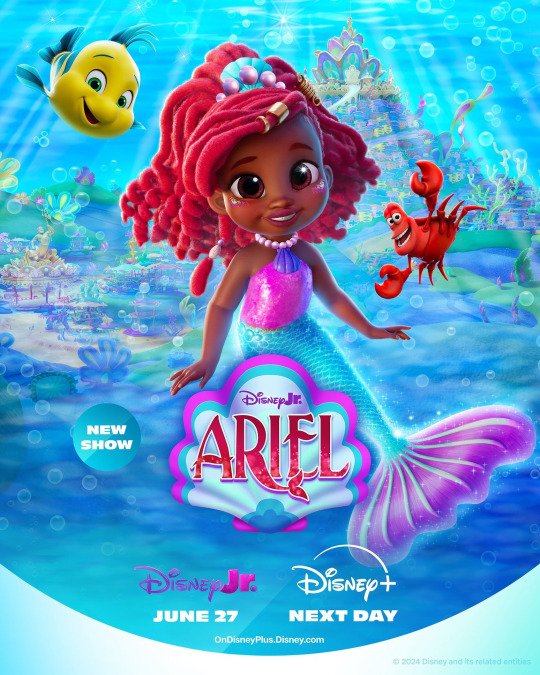
Ariel To Make A Splash Debut Thursday, June 27, Streaming Next Day On Disney+
Disney Branded Television announced today the premiere date for the highly anticipated animated musical series “Ariel.” Inspired by “The Little Mermaid (2023)” the series will debut on THURSDAY, JUNE 27, on Disney Junior (9:00 a.m. EDT/PDT) and air on Disney Channel later that day, with an initial batch of eight episodes available on Disney+ the following day, FRIDAY, JUNE 28.
Disney Junior has also released the theme song who will be Disney TVA 's #98 series overall.
youtube
To help build excitement for “Ariel,” it was also announced that a new series of shorts titled “Ariel: Mermaid Tales” will be featured across Disney Junior, Youtube and Disney+ beginning Wednesday, June 5. Each two-minute short will highlight a different aspect of Ariel’s life in Atlantica.
Recurring Guest Cast on ARIEL include Yvette Nicole Brown ("Firebuds", "Pupstruction") as Aquatica, Melissa Villaseñor ("Primos", Cartoon Network Studios "OK K.O Let's Be Heroes") as Navi, Ron Funches (Pixar Animation Studios "Inside Out 2") as Delfino, Kevin Michael Richardson ("The Proud Family: Louder and Prouder", "La Familia Avenúñez") as Sebastian, Parvesh Cheena (Netflix Animation "Centaurworld") as Ravi, Danni Washington as Tantie Chantale, Alanna Ubach (Nickelodeon "El Tigre: The Adventures of Manny Rivera") as Cristina Cuttles, Dana Heath (Nickelodeon "Danger Force") and Jessica Mikayla (Disney Launchpad "Project CC") play Ariel’s twin sisters Ayanna and Alanna, respectively.
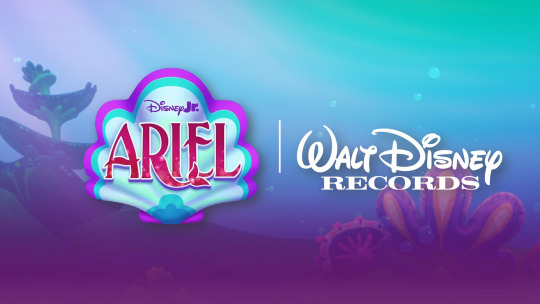
The acclaimed songwriting teams are comprised of Anthony M. Jones (Tone), Sofia Quinn, Olivia Waithe, Chantry Johnson, Michelle Zarlenga and Rosemarie Tan. Christopher Willis ("The Wonderful World of Mickey Mouse" franchise) serves as composer. Sean Skeete, dean of the Professional Performance division at Berklee College of Music, is the Caribbean music consultant.
Walt Disney Records will release a digital soundtrack on Friday, June 28, and an array of dolls, playsets, role-play, costumes, apparel, books and more from Disney Consumer Products and Disney Publishing Worldwide will be available this summer.
#Ariel#The Little Mermaid#Little Mermaid#The Little Mermaid (2023)#Little Mermaid (2023)#Lynne Southerland#Norma P. Sepuvelda#Disney Junior#Disney Jr#Youtube
18 notes
·
View notes
Text
CBS Studios today announced new eight-part historical drama series King and Conqueror starring James Norton as Harold, Earl of Wessex and Nikolaj Coster-Waldau as William, Duke of Normandy.
"King and Conqueror will bring Harold and William to life, depicting their lives, loves and families, and the gripping, high stakes power game that led to their fateful meeting in 1066," said Sue Deeks, Head of BBC Programme Acquisition.
Written by Michael Robert Johnson and with the opening episode directed by Baltasar Kormákur, King and Conqueror will premiere on BBC One and BBC iPlayer.
James Norton will also executive produce through his production company, Rabbit Track Pictures and Nikolaj Coster-Waldau will direct an episode and also serves as executive producer. Filming is set to take place in Iceland next year. The series is produced by TDP Development Partnership, Rabbit Track Pictures, Shepherd Content and CBS Studios in association with the BBC. Icelandic production services will be provided by RVK Studios.
The BBC has acquired broadcasting rights for the series in the United Kingdom and it will be distributed outside of the UK by Paramount Global Content Distribution.
41 notes
·
View notes
Text

MY OLD ASS (2024)
Starring Maisy Stella, Aubrey Plaza, Percy Hynes White, Maddie Ziegler, Kerrice Brooks, Maria Dizzia, Seth Isaac Johnson, Carter Trozzolo, Al Goulem and Alexandria Rivera.
Screenplay by Megan Park.
Directed by Megan Park.
Distributed by Amazon MGM Studios. 89 minutes. Rated R.
Despite having one of the worst titles of the year – perhaps thevery worst one – My Old Ass turns out to be a sweet and charming coming-of-age film with a slight supernatural bent.
The film’s high concept – that a teen girl named Elliott (Maisy Stella) is smoking mushrooms with friends in the woods and somehow comes into contact with her 39-year-old self (Aubrey Plaza) and ends up being able to continue to communicate with her future self and learn about what is coming for her life, for better or worse – is a fascinating and intriguing idea. Yet, at the same time, this plot thread is mostly dropped for long periods of the film, and honestly, it’s not missed all that much.
This seems like a strange statement to make because Aubrey Plaza is terrific as adult Elliott and every time that she is on screen the film perks up. Still, I could see a variation of this story without the whole idea of the older Elliott, and it probably still would work out pretty well.
Elliott is a high school senior, comfortable in her lesbianism, who lives in a gorgeous farm by a lake in the wilds of Canada. She hangs out with her friends and girlfriend and can’t wait to go off to Toronto for college and leave her small town behind.
During the mushrooms episode, adult Elliott tells her a certain amount about what will happen to her and how her life will turn out. She also has one specific piece of advice for her younger self – to stay away from a boy named Chad. Of course, she meets him soon after that, and to her surprise, Elliott – who had never even considered that she may be bi or even straight – finds herself having feelings for him. This puts her in an awkward position, she has been warned away from this guy but finds herself drawn to him.
In the meantime, other parts of her world start to fall apart when she finds that her father is planning to sell the family farm. While Elliott felt that she was desperate to leave the place behind, she never imagined that it wouldn’t still be there for her if she ever wanted or needed to return. This puts strain on her relationships with her father, mother and brothers.
To make things worse, suddenly she is unable to contact her older self to talk it all over and get advice about what she could and should do with her life. So, she tries haltingly to figure it all out for herself.
My Old Ass turns out to be a sweet and charming look at growing up, surprisingly funny and heartfelt. It’s definitely worth giving a chance, despite its title.
Jay S. Jacobs
Copyright ©2024 PopEntertainment.com. All rights reserved. Posted: September 12, 2024.
youtube
7 notes
·
View notes
Text



Found these in a random tree...
0 notes
Text


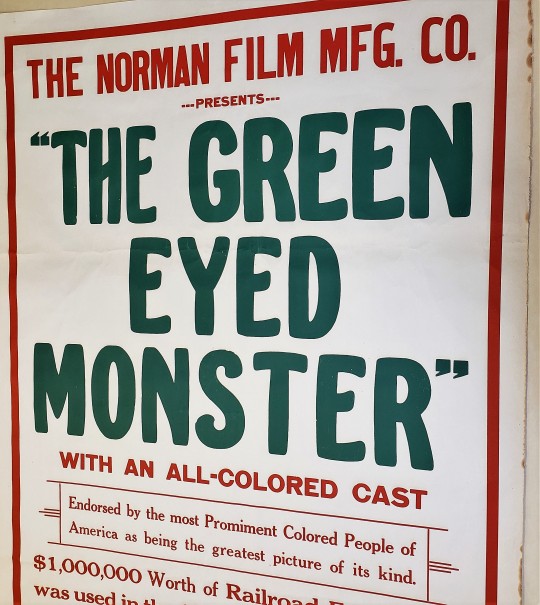
Black History Spotlight: The original movie poster for The Green-Eyed Monster
Last year, Special Collections and Archives at the University of Iowa Libraries acquired items to form a new collection: the Black Film and Television Collection. In honor of Black History Month, we’re shining a spotlight on a different item from this collection. This week, we’re taking a look at one of the collection’s earliest (and rarest) items: the original poster for the 1919 film The Green-Eyed Monster.
The Library of Congress estimates that 75% of all silent films have been lost, and that number unfortunately includes many of the first films made for Black audiences. The Green-Eyed Monster is one such film. Since we don’t have access to the movie itself, marketing materials like this poster offer a vital glimpse into a formative period of cinematic history and a history that was very nearly lost. Amid a culture of violent racism, systemic inequality, and segregation, Black artists behind and in front of the camera offered their audiences a look at the possibilities ahead.
During the era of segregation, Black audiences were already barred from most movie showings, and there were only a few movie houses open specifically for Black viewers. To see movies like The Green-Eyed Monster, they would have had to attend separate, late-night screenings called “midnight rambles.” But attend they did—there was a demand for what came to be called “race films,” and about 500 movies were released to meet it. During the daytime, theaters might show movies like the notoriously racist Birth of a Nation, but at the stroke of midnight, Black audiences could gather to appreciate Black artistry.
Where does The Green-Eyed Monster fit in?
The Green-Eyed Monster was produced by Norman Studios in Jacksonville, Florida. And while the film featured an all-Black cast, the studio that produced it was owned by a white filmmaker, Richard E. Norman, who sought to cater to an untapped audience. To make his first race film, Norman retooled the script for one of his previous films, The Wrecker, and hired Black actors for the roles. Norman Studios would go on to produce seven more feature-length films with all-Black casts, but the studio died out during the rocky transition to “talkies.”
So what exactly was The Green-Eyed Monster about? While the film itself is lost, the broad strokes of the story remain. As the title indicates, the plot revolves around jealousy, both romantic and professional. Two friends who work for rival rail companies end up falling for the same woman—and competing for the same lucrative contract. To settle both conflicts, these friends stake everything on a race on rails. Given that the poster aims to entice audiences with an “$80,000.00 train wreck,” it’s safe to assume that in this case, the track to true love is a perilous one.
While this poster and the film it advertises represent a form of progress, the most impactful works in the genre of race film were produced by Black filmmakers at Black-owned studios.
Lincoln Studios and Oscar Micheaux
In the early years of cinema, the industry wasn’t centralized in Los Angeles the way it is today, and production companies could be found in cities across the country. One such studio was Lincoln Motion Picture Company, which began in Lincoln, Nebraska, in 1916 and lasted until 1921. Its founders were brothers, Noble Johnson and George Perry Johnson, and their 1916 debut was the first-ever race film, The Realization of a Negro’s Ambition. This is widely credited as the first film ever to portray the experience of middle-class Black characters. Its story is as aspirational as its title: a dreamer strikes out to make it in the oil business, excels, and returns to his family a wealthy man.
The same segregation policies that led to the phenomenon of midnight rambles made it especially difficult for a production company aimed at a Black audience to maintain its bottom line. Again, that’s not because these films lacked an interested viewership; their distribution was limited by the racist policies of the time, and so were their profits. While Lincoln was a short-lived venture, its impact can’t be overstated. By the time the studio that originated race films closed down, another Black leader had found his calling in film.
Oscar Micheaux’s Chicago studio, Micheaux Film Corporation, was one such company. Throughout his decades-long career, Micheaux produced 40 films. His features showed Black audiences a world they recognized: a place of struggle and striving, where racism was a constant reality. He also wrote Black characters they could identify with, fully human in contrast to the caricatures in white films of the time.
There are so many other stories to be found in the Black Film and Television Collection. Next week, we’ll dive deeper into Micheaux, his Midwestern connections, and the continued rise of race films in the first half of the twentieth century.
--Natalee Dawson, Communication Coordinator at UIowa Libraries with assistance from Liz Riordan, Anne Bassett, and Jerome Kirby
#university of iowa#special collections#film#silent film#black history matters#black history month#black film#libraries#Norman Films Co#green eyed monster
86 notes
·
View notes
Text
"LITTLE WOMEN" (1978) Review
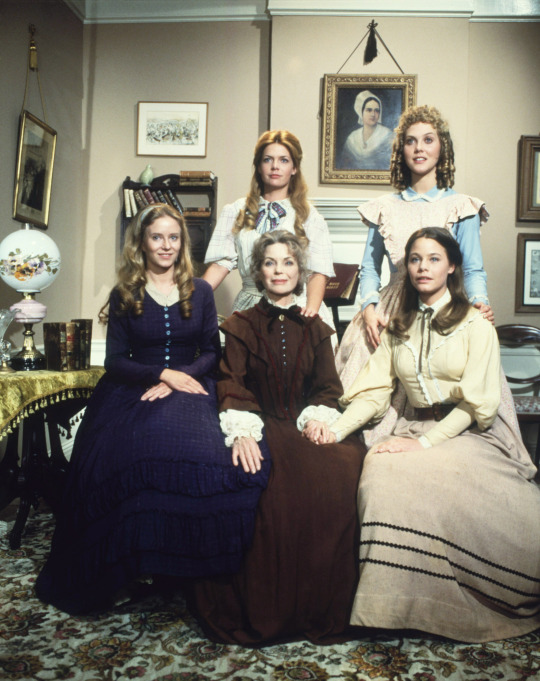
"LITTLE WOMEN" (1978) Review
There have been many adaptations of "Little Women", Louisa May Alcott's 1868 novel. And I have seen most, if not all of the live-action versions. But the first adaptation I have ever seen was NBC's adaptation that first aired back in 1978. If I might be honest, I ended up developing a rather high opinion of it.
Since my first viewing of 1978's "LITTLE WOMEN", I have seen other adaptations. And over the years, I had developed this belief that this television production from 1978 had not been good as I had originally believed. It took many years for me to give this two-part miniseries a second chance. "LITTLE WOMEN" told the story of Josephine (Jo) March and her three sisters during the 1860s - Meg, Beth and Amy. The two-part miniseries opened during the Christmas holidays in December 1861 and follow the sisters, their other family members and friends throughout the Civil War and the early post-war years. Because Jo is the main character, despite being the second sister, this adaptation of "Little Women" has the distinction of being the only version that allows her to serve as narrator.
After my recent re-watch, I could see why my opinion of "LITTLE WOMEN" had diminished over the years . . . at least from a superficial point-of-view. To be blunt, I was not that impressed by the miniseries' production values. The entire production was shot on the Universal Studios backlot and one could sometimes see the California hills in the background. Granted, I still believe set decorator Richard G. Goddard, art director Howard E. Johnson and cinematographer Joseph F. Biroc did the best they could to recreate 1860s Concord, Massachusetts, New York City and Italy. But I did have a problem with the miniseries' costume designs. On the surface, they seemed . . . serviceable for a television production set during the 1860s. But if I must be frank, the costumes also looked as if they had been taken from a costume warehouse for second-rate stage productions. Even worse, all or most of the actresses seemed to be wearing mid-to-late 1970s shoes underneath their mid-19th century dresses and gowns. I was shocked to discover that one of Hollywood's most iconic costume designer, Edith Head, had created the miniseries' costumes. So . . . what on earth happened? Head had created the costumes? "LITTLE WOMEN" was not even Head's first or last period drama. So, what happened?
Did I have any other problems with "LITTLE WOMEN"? Well . . . I did not care for leading actress Susan Dey's hairstyle in the second part of the miniseries. I realize her character, Jo March, had cut her hair to raise funds for her mother's journey to Washington D.C. But her hair never grew back. Never. Instead, it remained shorter than it originally was and styled into a bob. Why? And I had a problem with two particular performances. I will discuss one of them later. The other involved leading lady Susan Dey serving as the miniseries' narrator. Do not get me wrong. Dey is a fine actress and did the best she could. But I found her narration a bit clunky and unnecessary, thanks to the words provided to her by screenwriter Suzanne Clauser's teleplay.
Despite my quibbles, I found a lot to admire about "LITTLE WOMEN". I believe its status as a two-part miniseries, instead of a movie, screenwriter Suzanne Clauser had plenty of opportunities to fully adapt Alcott's novel with less shortcuts and more depth. I have always believed that Alcott's novel was basically a coming-of-age story for Jo March and her three sisters. To me, this made any adaptation of "LITTLE WOMEN" a major character study. And if there is one thing that the two-part miniseries did well was explore its characters and their situations with great depth.
This especially seemed to be the case of Jo's relationship with her neighbor and friend, Theodore "Laurie" Laurence, his personal relationship with his grandfather James Laurence, Amy's European trip and her romantic travails, and Meg's relationship with Laurie's tutor John Brooke. I was especially impressed by the production's handling of Jo's relationship with Professor Friedrich Bhaer. I found it very dynamic, thanks to Suzanne Clauser's screenplay, along with the performances involved. Some, but not all of the adaptations of Alcott's novel tend to forget - at times - that part of it spanned most of the U.S. Civil War. Fortunately, this adaptation never forgot. And as much as I seemed critical of the miniseries' narration, it also reminded television audiences that . . . yes, part of "LITTLE WOMEN" was partially set during the Civil War.
Speaking of performances, "LITTLE WOMEN" had the blessed luck to feature a first-rate cast. I may not have been impressed by the narration provided by Susan Dey (for which I blame another), I was more than impressed by her portrayal of the story's leading character, Josephine "Jo" March. I though she did a superb job in capturing Jo's mercurial personality and obsession with her developing profession as a writer. Meredith Baxter gave an excellent performance as the oldest March sister, Margaret "Meg" March. She conveyed Meg's vanity and obsession with the family's social status and stubborn refusal to give up her love for John Brooke. My only issue is that I believe the actress may have been a bit too old portraying a character that aged from 16 to her early 20s. Eve Plumb portrayed the shy, yet musical Elizabeth "Beth" March. I thought she did an excellent job of combining Beth's emotional, yet retiring nature and in the end, gave a very poignant performance. Ann Dusenberry was roughly 24 to 25 years old when she portrayed the youngest March sibling, Amy. Before my recent re-watch of "LITTLE WOMEN", I had assumed she was too old to portray a younger Amy. But upon my viewing, I realized that she actually managed to give a rather convincing and skillful performance of Amy during the war years (between ages 12 and 16) without to resorting to exaggerated histrionics. And I also admired her portrayal of the older Amy who found herself drawn between two men during her European trip.
I cannot deny that most of the actors who have portrayed Theodore "Laurie"/"Teddy" Laurence over the years gave some pretty damn good performances. But I believe that Richard Gilliland's portrayal of the emotional and moody "Laurie" has to be one of the two best I have ever seen, hands down. His only equal - at least in my eyes - is Jonah Hauer King's performance in the 2017 BBC miniseries. But if I had to choose my favorite portrayal of Laurie's stern, yet warm grandfather, James Laurence, it would be the one given by Hollywood icon Robert Young in this miniseries. May I be frank? I believe both actors provided some of the production's best dramatic moments in their depiction of the developing relationship between grandson and grandfather.
Dorothy McGuire gave a fine performance as Mrs. March aka "Marmie", the four sisters' mother. Thanks to the actress' performance, her Mrs. March seemed more like a well-rounded human being, instead of an archetype. Greer Garson was in fine form as the March family's tart-tongued, yet wealthy matriarch, Aunt Josephine March. William Shatner was excellent as the German-born professor who befriended Jo in New York City, Professor Friedrich Bhaer. Although I found his German accent a bit questionable, I cannot deny that he managed to provide a great deal of energy and complexity to Friedrich's relationship with Jo. Cliff Potts gave a solid performance as Meg's love interest and Laurie's tutor, John Brooke. I can say the same about Virginia Gregg, who portrayed the family's housekeeper, Hannah Mullet. I wish I could provide a better opinion of William Schallert's portrayal of the sisters' father, John March, but his presence in the miniseries seemed very limited, aside from one scene that featured the birth of Meg's children. One performance really failed to impress me and it came from John de Lancie, who portrayed Laurie's English-born classmate from Harvard and Amy's suitor, Frank Vaughan (Fred in the novel). Quite frankly, I found his performance a bit off. Knowing de Lancie for the first-rate actor he truly is, I suspect that between Alcott and screenwriter Suzanne Clauser's writing, the character ended up as a flat, one-note plot device - a situation that not even de Lancie could rise above.
Yes, I had some issues with "LITTLE WOMEN". I found some of the production values questionable, especially some of Edith Head's costumes, the hairstyles and one particular character. But overall, I believe it proved to be a first-rate adaptation of Louisa May Alcott's novel. If I must be frank, thanks to David Lowell Rich's direction, Suzanne Clauser's screenplay and a superb cast led by Susan Dey, I consider the 1978 adaptation of Alcott's novel to be among the three best I have ever seen.
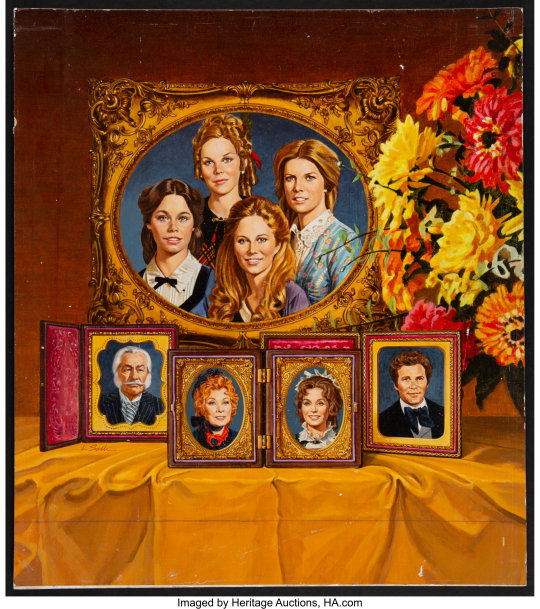
#little women#little women 1978#louisa may alcott#susan dey#jo march#meredith baxter#meg march#eve plumb#beth march#ann dusenberry#amy march#richard gilliland#theodore laurie laurence#dorothy mcguire#marmee march#robert young#greer garson#william shatner#john de lancie#david lowell rich#virginia gregg#cliff potts#u.s. civil war#gilded age#william schallert#joyce bulifant#carlene watkins#period drama#period dramas#costume dramas
13 notes
·
View notes
Note
Do you think Michael was somewhat homophobic himself when addressing all the gay rumors? I've seen some interviews of him and he sounded a bit too dismissive or offended
Michael was a straight man born in 1958, raised by a super religious family (and according to his daughter, said family still treats homosexuality as being taboo).
He was the target of gay rumors for most of the 50 years of his life, starting in the freaking 70's. Said rumors went from "isn't it weird that he doesn't go around fucking groupies" to "we are convinced this man is a pedophile" - naturally, he didn't like being accused of being an abuser, and would get defensive and visibly at times, like literally anyone on Earth would.
The first state to decriminalize homosexuality was Illinois, in 1962. AIDS wasn't discovered until 1981, and for many years it was seen as "the gay plague" (and some ignorant people still try to claim that's what it is). Only in 2003 did all of the USA ban anti-gay laws.
For the overwhelming majority of Michael's life, homophobia was the norm. So, naturally, every now and then he said somethings that are seen as unacceptable today - hell, plenty of actually gay people did the same back then.
Yet even in that context, Michael Jackson was still 100% chill when his own daughter (Paris Jackson) , at the age of 8, started having crushes on famous women. She said her dad would playfully tease her the same he would to her brothers, saying "You got yourself a girlfriend", and that this helped her quite a lot since, again, most of their relatives would see that as a big taboo.
He also invited Magic Johnson to be part of his music video for the song "Remember The Time", of the album Dangerous, during the years in which Johnson was dealing with the media speculation on his private life due to him confirming he had HIV. The same album had the song "Gone Too Soon", a tribute to a teenage boy that got AIDS because of a blood transfusion and eventually passed away.
Then, there's the epic tale of his friendship and almost colaboration with Freddie fucking Mercury, which included Michael seeing lots of performances of Queen and saying they HAD to release the song "Another One Bites The Dust", the two of them singing some awesome duets, and unfortunately ended in a big fight because of Michael bringing his pet llama to the studio during the recording sessions (No, I am not kidding).
So no, I don't think Michael was homophobic. Quite the contrary. Anyways, enjoy this awesomeness:
youtube
youtube
17 notes
·
View notes
Text

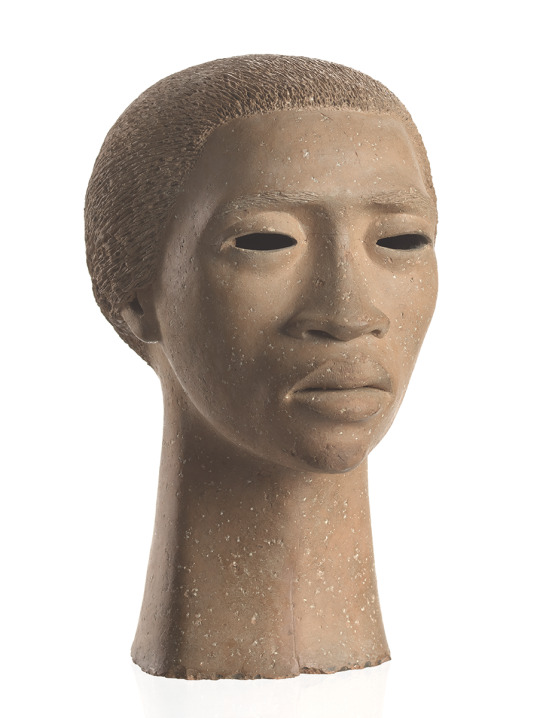
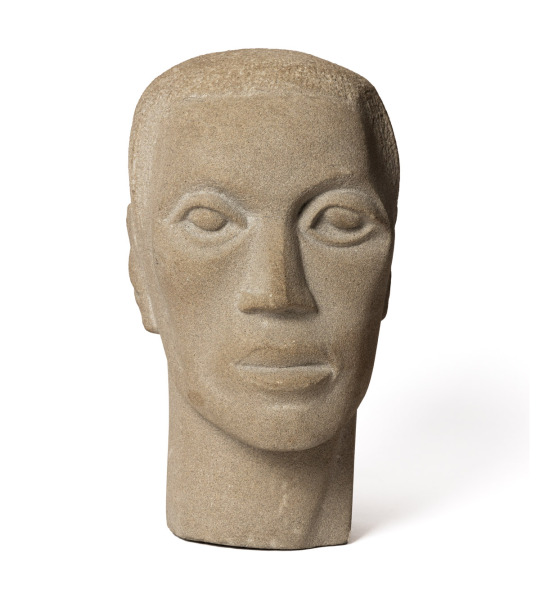
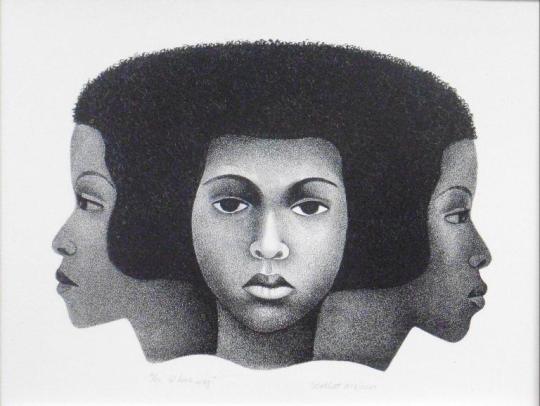
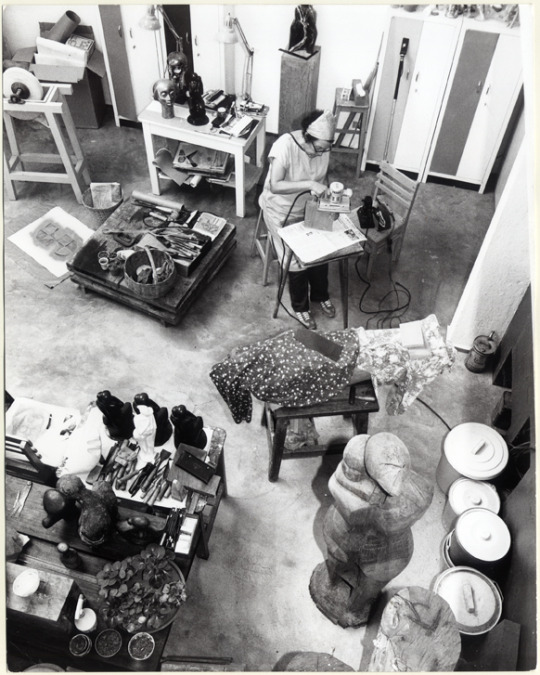
THE ARTIST & HER WORK: ELIZABETH CATLETT
Elizabeth Catlett (1915-2012) lived a storied life. From a young age, she knew she wanted to be an artist, and pursued her dreams by receiving a BA in Art from Howard University in 1935.
She married Charles White (another legacy artist), and together they moved to NYC, where their circle of friends included the likes of Loïs Mailou Jones, Charles Alston, Aaron Douglas, Jacob Lawrence, and Langston Hughes.
In 1946, the pair moved to Mexico, where Catlett was a guest artist at the printmaking collective Taller de Gráfica Popular (TGP). This was a formative time in her practice, as her work became increasingly sociopolitical. She began spending time with Diego Rivera, Frida Kahlo, and David Siqueiros and was committed to representing strength and struggle in her work.
During the Red Scare of the 1950s, her activism and work with TGP came under investigation by the House Un-American Activities Committee (HUAC) and the U.S. embassy in Mexico. She was declared an "Undesirable Alien" and was prevented from returning to the States. By 2002, her citizenship was reinstated, and she became a celebrated artist around the world.
Images:
Charles White. Elizabeth Catlett in her studio. c. 1942. Black-and-white photograph, 3 5/8 × 3 9/16" (9.2 × 9 cm). Private collection. © The Charles White Archives
Elizabeth Catlett (1915–2012), Head of a Negro Woman, 1946
Gift of Robert L. Johnson, © 2020 Catlett Mora Family Trust/Licensed by VAGA at Artists Rights Society (ARS), NY.
Elizabeth Catlett, Head. Carved limestone, 1943. Approximately 13 1/2x9 1/2x7 1/4 inches. (sold for $ 485,000 in 2021)
Elizabeth Catlett, "Which Way?," 1973–2003, lithograph, 11 x 14 ½ in. (27.5 x 37 cm), edition 4 of 25. Courtesy of the Elizabeth Catlett Family Trust.
Image of Elizabeth Catlett at work in her studio, circa 1983
#elizabeth catlett#women in art#female artists#20th century art#sculpture#printmaking#photography#charles white#frida khalo#diego rivera#nyc artist#mexico art#art history#black and white#artist studios#artist profile
11 notes
·
View notes
Text

Online Exhibits
National Museum of African American History and Culture: Afrofuturism: A History of Black FuturesAfrofuturism: A History of Black Futures explores the past, present, and future of this dynamic concept in an exhibition that features the various people, unique themes and radical artistry that have given voice to it. Featuring hundreds of objects and images with several multimedia displays, this exhibition explores the history of Afrofuturist expression and culture through literature, music, art, film, fashion, activism and more.
U.S. National Archives: Black Arts Movement (1965-1975) The Black Arts Movement was a Black nationalism movement that focused on music, literature, drama, and the visual arts made up of Black artists and intellectuals. This was the cultural section of the Black Power movement, in that its participants shared many of the ideologies of Black self-determination, political beliefs, and African American culture.
The Black Arts Movement started in 1965 when poet Amiri Baraka [LeRoi Jones] established the Black Arts Repertory Theater in Harlem, New York, as a place for artistic expression. Artists associated with this movement include Audre Lorde, Ntozake Shange, James Baldwin, Gil Scott-Heron, and Thelonious Monk. Records at the National Archives related to the Black Arts Movement primarily focus on individual artists and their interaction with various Federal agencies.
Google Arts & Culture: African American Art: Harlem Renaissance, Civil Rights Era, and Beyond African American Art: Harlem Renaissance, Civil Rights Era and Beyond presents works dating from the early 1920s through the 2000s by Black artists who participated in the multivalent dialogues about art, identity, and the rights of the individual that engaged American society throughout the twentieth century.
National Gallery of Art: Black Art & Artists in Our Collection Explore works from Black artists across centuries, mediums, and geographies, ranging from 19th century still life painter Robert Seldon Duncanson to modern and contemporary pieces by Jacob Lawrence, Romare Bearden, Alma Thomas, Sam Gilliam, Kara Walker, Hank Willis Thomas, and more.
Smithsonian American Art Museum: African American Art SAAM is home to one of the most significant collections of works by African American artists in the world. These artworks span three centuries of creative expression in various media, including painting, sculpture, textiles, and photography, and represent numerous artistic styles, from realism to neoclassicism, abstract expressionism, modernism, and folk art. From a rare group of photographs by early African American studios to an important group of works by self-taught artist Bill Traylor to William H. Johnson’s vibrant portrayals of faith and family, to Mickalene Thomas’s contemporary exploration of Black female identity, the museum’s holdings reflect its long-standing commitment to Black artists and the acquisition, preservation, and display of their work.
NYPL: Schomburg Center for Research in Black Culture, Art and Artifacts Division The Art and Artifacts Division collects, documents, preserves, and interprets art and artifacts by and about peoples of African heritage throughout the world. Fine and applied art and material culture objects from the seventeenth century to the present are collected, with emphasis on the visual arts of the twentieth century in the United States and Africa.
Google Arts & Culture: Beat by Beat This interactive online exhibit was created as a celebration of 50 years of hip hop in collaboration with The Kennedy Center, The Bronx County Historical Society, The Museum at FIT, The National Museum of African American History and Culture, The Rock and Roll Hall of Fame, The Baltimore Museum of Art, The Hip Hop Education Center, and HipHop2020 Archive.

Streaming Videos from the MCPHS Libraries
The Amazing Nina Simone She was left out of Civil Rights history, erased by jazz critics, and forgotten by most Americans because no one knew how to categorize her greatness. But throughout the 1960s, Nina Simone was both loved and feared for her outspoken vision of Black Freedom. Her musical proclamations like "Mississippi Goddam", and her iconic style created an alternative voice that continues to empower with its unrelenting appeal for justice. Now, a new documentary reveals the real Nina Simone through over 50 intimate interviews with those who best knew the artistry and intentions of one America's true musical geniuses. With new insights into her journey from Classical Music and the segregated American South, Nina's legacy is chartered all the way to the South of France where she finally found freedom.
JazzJazz has been called the purest expression of American democracy; a music built on individualism and compromise, independence and cooperation. Ken Burns follows the growth and development of jazz music from the gritty streets of New Orleans to Chicago's south side, the speakeasies of Kansas city and to Times Square.
Jean-Michel Basquiat: The Radiant Child Director Tamra Davis pays homage to her friend in this definitive documentary but also delves into Basquiat as an iconoclast. His dense, bebop-influenced neoexpressionist work emerged while minimalist, conceptual art was the fad; as a successful Black artist, he was constantly confronted by racism and misconceptions. Much can be gleaned from insider interviews and archival footage, but it is Basquiat's own words and work that powerfully convey the mystique and allure of both the artist and the man.
Videos to Check Out from Your Local Library
Summer of Soul (...or When the Revolution Could Not Be Televised) In his acclaimed debut as a filmmaker, Ahmir "Questlove" Thompson presents a powerful and transporting documentary, part music film, part historical record, created around an epic event that celebrated Black history, culture, and fashion. Over the course of six weeks in the summer of 1969, just one hundred miles south of Woodstock, The Harlem Cultural Festival was filmed in Mount Morris Park (now Marcus Garvey Park). The footage was largely forgotten, until now. This documentary shines a light on the importance of history to our spiritual well-being and stands as a testament to the healing power of music during times of unrest, both past, and present. The feature includes concert performances by Stevie Wonder, Nina Simone, Sly & the Family Stone, Gladys Knight and the Pips, Mahalia Jackson, B.B. King, The 5th Dimension, and more.
Through a Lens Darkly: Black Photographers and the Emergence of a People The first documentary to explore the role of photography in shaping the identity, aspirations and social emergence of African Americans from slavery to the present, Through a Lens Darkly probes the recesses of American history by discovering images that have been suppressed, forgotten and lost. Bringing to light the hidden and unknown photos shot by both professional and vernacular African American photographers, the film opens a window into lives, experiences and perspectives of Black families that is absent from the traditional historical canon. These images show a much more complex and nuanced view of American culture and society and its founding ideals. Inspired by Deborah Willis's book Reflections in Black and featuring the works of Carrie Mae Weems, Lorna Simpson, Anthony Barboza, Hank Willis Thomas, Coco Fusco, Clarissa Sligh and many others, Through a Lens Darkly introduces the viewer to a diverse yet focused community of storytellers who transform singular experiences into a communal journey of discovery – and a call to action.
Black Art: In the Absence of Light At the heart of this feature documentary is the groundbreaking "Two Centuries of Black American Art" exhibition curated by the late African American artist and scholar David Driskell in 1976. Held at the Los Angeles County Museum of Art, this pioneering exhibit featured more than 200 works of art by 63 artists and cemented the essential contributions of Black artists in America in the 19th and 20th centuries. The exhibit would eventually travel to the Dallas Museum of Fine Arts, the High Museum of Art in Atlanta, and the Brooklyn Museum. The film shines a light on the exhibition's extraordinary impact on generations of African American artists who have staked a claim on their rightful place within the 21st-century art world.
#Black History Month 2024#Black History Month activities#Black History Month movies online#Black History Month Free Books#Black History Month#Black Lives Matter#Black History Matters
10 notes
·
View notes